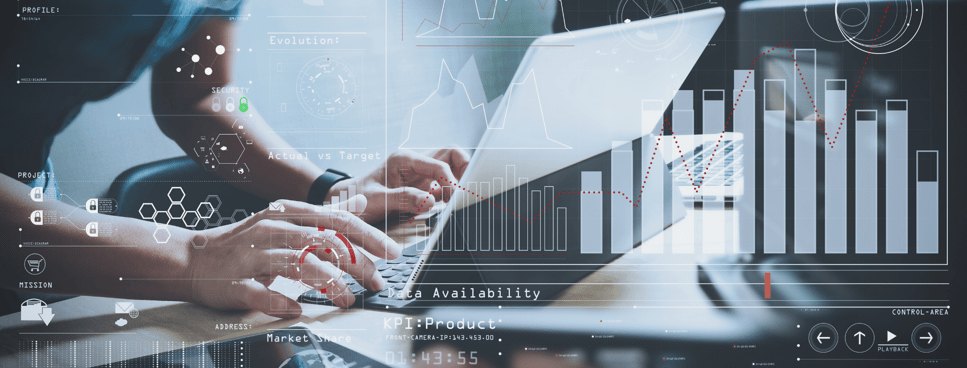
“SO IN MANY INDUSTRIES, DIGITAL TRANSFORMATION IS NO LONGER MERELY AN OPPORTUNITY FOR DIFFERENTIATION; IT´S IN FACT A PREREQUISITE FOR REMAINING COMPETITIVE."
What is digitalization?
"Increasing use of digital technology generates huge volumes of data; subsequently, organizations must deal with increasing complexity. Nearly all industries are experiencing digital transformation today, as analog products and services are being replaced by digital alternatives that can be quickly scaled and distributed at low cost. For example, streaming services like Spotify and Netflix have replaced CD and DVD rentals. And processes in both physical as well as knowledge work are being automated at a rapid pace with, for example, robotics in manufacturing and logistics, and algorithms in law and finance, respectively. In addition, digitalization affects entire markets such as mobility and hospitality, where Uber and Airbnb have replaced previous intermediaries in taxi and hotel operations. And, of course, Covid-19 magnifies this trend, where an increasing number of industries are being digitalized and data starts to play a crucial role in business."
Why do so many organizations strive to be data driven?

"Digitalization forces organizations to adapt to a new reality. When attempting to remain competitive, they face increased complexity and rapidly changing requirements – which nevertheless also presents considerable opportunities for value creation. Rather than being reactive or relying on guesswork, data can streamline operations when leveraged correctly. But above all, data-driven development can accelerate innovation via new, comprehensive insights into various markets – insights that are not available via conventional means. So in many industries, digital transformation is no longer merely an opportunity for differentiation; it’s in fact a prerequisite for remaining competitive."
What are the main challenges for organizations that want to be data driven?
"Although this transformation requires a technological infrastructure for collecting and analyzing data, the main challenges have in fact proven to be organizational and to relate to leadership and culture. Without appropriate structures and internal trust in data-driven processes, the intended benefits do not materialize. While most organizations say they want to be data driven, most surveyed managers claim that precisely these factors are what prevent them from accomplishing this objective."
Sebastian's tips for organizations that want to become more data driven:
Even if your organization currently doesn’t have big data or use machine learning, it’s tremendously valuable to understand one’s current situation and preconditions, and to set appropriate goals for accomplishing sustainable, long-term digital transformation:
- Review current data collection, storage, and sharing. The goal is to have a functioning data warehouse and to actively start sharing data internally to make the best possible decisions.
- Determine which of your current business challenges are best suited for analysis using data you have or can easily collect. Focus on problems that are meaningful from a strategic standpoint and that receive support from executive management.
- Start at a small scale and focus on realistic goals. Then, the lessons learned can be used to scale up organizational investment in data-driven development.
About the program
The From Data to Business Impact program takes you on a transformation journey during which you explore ways to accelerate your company's data-driven development. Program content ranges from basic understanding of different technologies and their potential impact on your strategy and business to ways to get company employees on the same page.

